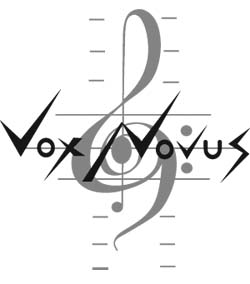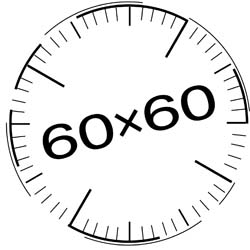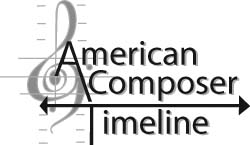| |
|
|
|
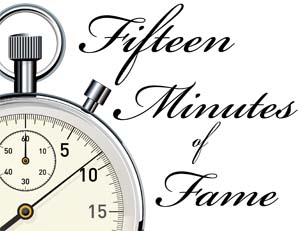
After receiving many submissions from around the globe, we are proud to announce the composers selected for Fifteen Minutes of Fame with Suzanne Kompass and Sean O’Boyle.
The composers selected include:
JJ de Azevedo,
Rodrigo Baggio,
Robin Benton,
Dominic Blake,
Erik Branch ,
Jesse Alexander Brown,
Andy Evan Cohen,
Fiona Linnane,
Aldo Lombera,
Steven H. Markowitz,
Daniel Mihai,
Kit Mills,
David Morneau,
Sean O'Boyle, and
Akmal Parwez
You can find more out at:
http://www.voxnovus.com/15_Minutes_of_Fame/featuring/Suzanne_Kompass_Sean_OBoyle/
|
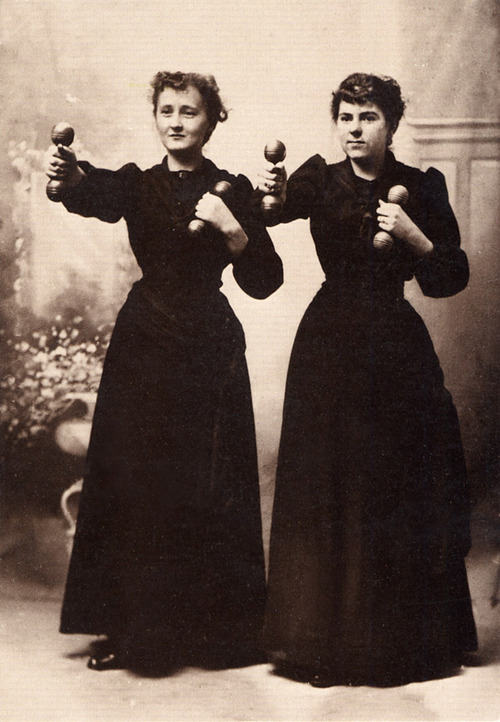
In 1967, electric guitarist Carlos Santana’s idea of fusing Latin rhythms with rock ’n’ roll ran into a major obstacle: he didn’t have any money to hire musicians. His wealthy father sure did, but he wouldn’t loan Carlos a dime unless he featured his Aunts Benadrilio and Darvonilla in the percussion section. To look at them, you wouldn’t think they could maintain a steady tempo. Turns out they were rock steady on their maracas, helping propel the band to stardom. Even after Santana paid back his dad, he kept his two aunts in the band, not least because audiences invariably called for the two to “get down,” which they always seemed happy to do.
- David Gunn - www.davidgunn.org
|
Audiences connect to music with good program notes.
When I first started studying composition, my teacher lectured to me about how to present my piece in person. I thought it was crazy that a composer should stand up and present his piece verbally to the audience. The piece should speak for itself… right?
Years later, after presenting hundreds of concerts I realize how right he was. I am still a big believer that your compositions should stand on their own and speak for themselves; however, that has nothing to do with presenting the work and connecting with the audience.
If you are fortunate, your work is being presented to a diverse audience that will most likely not have a frame of reference to the work you have written. The idea is to give the audience something to guide them in their listening experience. If you can do it in person that is very effective; otherwise, program notes is what you have for times when you can’t be present.
Some common rules to successful program notes: First explain the piece in one sentence in 15 words or less. It is always best to name the piece’s title at least once in italics and/or quotes. Most audiences want to know the inspiration for the piece or its topic; why the composer wrote the work.
Always manage your audiences’ expectations for a successful listening experience with basic indications of the work: length, dynamics, pace, instrumentation, etc.
For example – “Heavy Clouds” is a short soft duet for viola and voice that fades into sleep.
A couple of guidelines to note: 1-3 minutes is short; 4-9 minutes is average; 10-15 minutes is long; over 15 minutes is very long and best to start giving estimates of how long exactly; over 30 minutes or an hour you need to prepare the audience for the long haul. Composer’s who think 12 minutes works are short are not in sync with the world as we know it and the audience will know it if you advertise it in your notes.
Remember, program notes are opportunity to for the audience to bond with your work in a way that might not be able to do from a one time listen in a performance space. (You want to encourage them to listen to your piece again!) So do not “torture” your listener. Misdirection, inside jokes, cryptic explanations, and detailed compositional mechanics will most likely be lost on the audience even with the best intentions.
This is not to say you can’t explain yourself. (If you have the time.) I know many presentations of works will highlight a motif, or describe a particularly noticeable compositional technique which gives an audience the inside track of the working of the composition. The best presentations describe why the composer used it and what it symbolizes; however, long detailed analysis of ones own work usually ends in boring an audience, even if they are all students.
Again, program notes are a way for a listener to connect to your work. When people connect to the work they want to listen to it again. When they do, the piece will speak for itself.
|
|
|
|
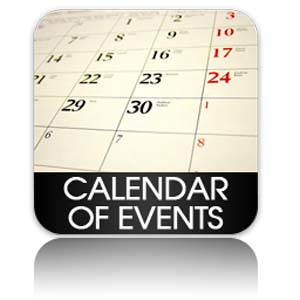
|
|
|
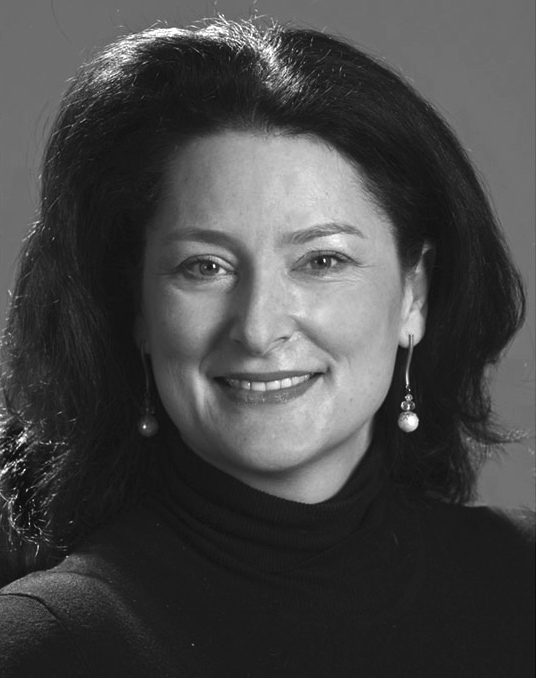
Sunday January 13, 2013
Composers's Voice first Concert of 2013 features Fifteen-Minutes-of-Fame: Jasmin Cowin, harp who has created a unique presentation for this hugely popular program!
In addition to all the harp work that she's been doing, Jasmin has organized an amazing concert featuring music & performances by: Bella Winds; Vladislav Boguinia; Yuri Boguinia; Fima Chupakhin; Jasmin Cowin; Kirstin Economy; Rachel Grasso; Mariam Machaidze; Claudia Montero; Trevor Nuckols; and Elisabeth Romano!
|
|
|
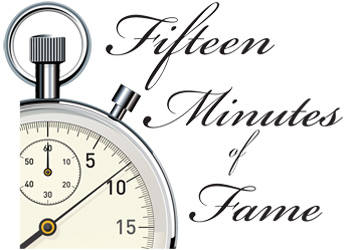
Fifteen-Minutes-of-Fame: One Minute Waltzes
CROSSISLAND clarinet/cello/piano trio
(or any subset)
Deadline January 20, 2013
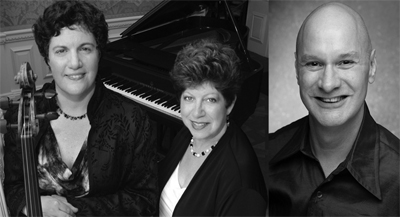
Vox Novus is calling for one-minute waltzes composed for Fifteen Minutes of Fame: CROSS ISLAND
Cellist Suzanne Mueller and pianist Elinor Abrams Zayas, pianistand clarinetist Thomas Piercy.
Works can be written for clarinet/cello/piano trio (or any subset) All works must be 60 seconds or less. Creative takes on the theme are welcome (and remember that one colloquial definition is "a breeze: something that presents no difficulties and can be accomplished with little effort").
Click here for more details
Fifteen-Minutes-of-Fame: Jenny Greene, soprano
(voice & piano)
Deadline January 24, 2013

Vox Novus is calling for one-minute pieces composed for Fifteen-Minutes-of-Fame: Jenny Greene, soprano w/piano to be performed Sunday, March 24, 2013 for the Composer's Voice concert series at the Jan Hus Church in New York City. The one-minute pieces are to be written specifically for this project, which will be performed by Jenny Greene and her piano accompanist.
Jenny Greene's range is from middle C to Eb above high C. You are welcome to include coloratura, as well as longer lyrical vocal passages. Dramatic works and extended vocal techniques are strongly encouraged.
Click here for more details
|
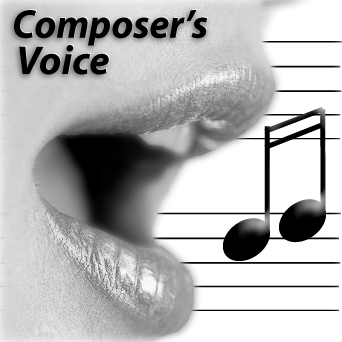
Vox Novus is calling for five-minute pieces composed for West Point Woodwind Quintet, to be performed at the May 11, 2013 Composer's Voice Presents concert at the Museum and Visitor Center at Gettysburg National Military Park in Gettysburg Pennsylvania. The five-minute quintet pieces are to be written specifically for this project, which will be performed by the West Point Woodwind Quintet. All works must be five-minutes or less.
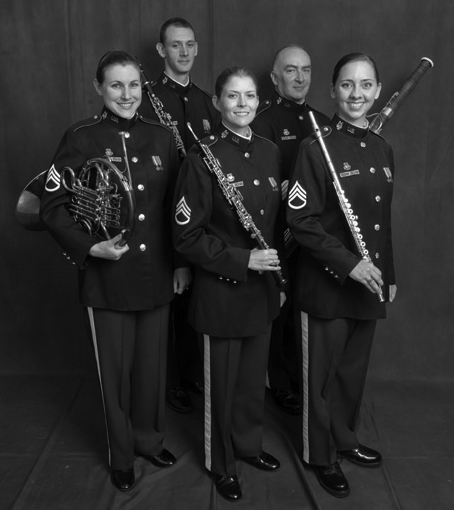
The theme of this call is the Sesquicentennial of the Civil War. Inspiration for the pieces can be drawn from Civil War, art, literature, political commentary, historical events, or anything else that can be associated with the Civil War. We would like to encourage composers to be as creative as possible while working within this framework. We are seeking original music and are avoiding variations and arrangements on previously composed music. Please take into consideration the need to maintain the sacred atmosphere of Gettysburg. Pieces should be for: flute in C or alto flute; oboe or English horn; Bb clarinet or A clarinet or bass clarinet; horn in F and bassoon. Submissions must be for full quintet: no solos, duets, trios, or quartet pieces will be considered.
For more information, visit:
http://www.voxnovus.com/composersvoice/calls/

LCCO 2013 Call for Scores for Chamber Orchestra
Posted: 22 Dec 2012 09:02 AM PST
Expiration of Opportunity:
2013 Call for Scores for Chamber Orchestra
Deadline January 19th 2013
Hear your piece played at a workshop, and receive feedback from the orchestra and conductor - some pieces will be performed later. Open to all composers who would be able attend the workshop in London.
The LCCO is a good amateur orchestra, of single wind and brass, strings, percussion, and piano.
JANUARY 19th deadline for receipt of scores - maximum duration 5 minutes
Selection by a panel of LCCO players, if too many are received.
MARCH 23rd - workshop performance and discussion of the selected pieces.
read more 
|
|
|

